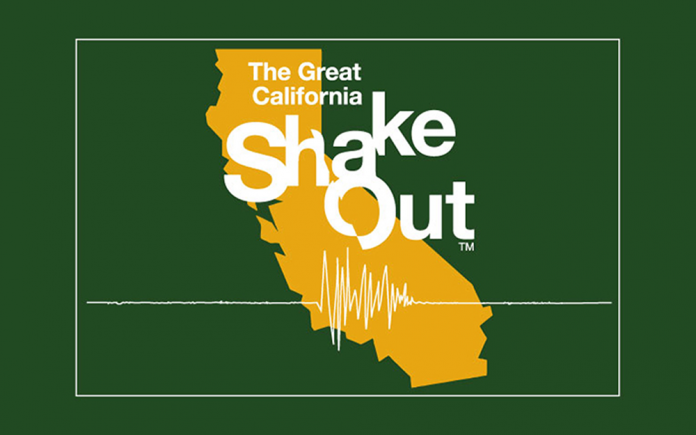
Thursday October 20th is the Great California Shake Out!
By Fire Chief Sam DiGiovanna
The first thought would likely have you thinking of this song https://lnkd.in/gUbpeKS But actually it is something completely different. None the less it is a good song that can put you in a good mood, so go ahead and shake it!
The Northridge earthquake struck on January 17th, 1994. The Northridge quake, named after the San Fernando Valley community near its epicenter, was the costliest in U.S. history, with damages estimated at more than $20 billion, and resulted in 57 deaths and causing $44 billion in damage reminds Fire Chief Sam DiGiovanna.
Those of us who lived through it will never forget the chaos and destruction. Though we have had others, this was the last “significant” quake that has caused such damage and death. We are way over-due for a quake and we cannot let our guard down and be unprepared.
And yet, experts consider Northridge a moderate earthquake — at 6.7-magnitude, it fell below what seismologists warn could be coming. In late 2017, seismologists stressed that Southern California is overdue for a 7.8-magnitude quake along the 800-mile San Andreas Fault. While such an event would hit the Los Angeles area the hardest, experts say it would be felt throughout the state, causing up to $300 billion in damages. The effects would likely spread nationwide, as business and travel are affected.
Are you prepared?
OK, that’s a bit flippant; no one can truly be prepared for what the Big One could bring. But we can take steps to better position ourselves.
Accept that natural disasters are a constant threat.
If there’s one constant when it comes to natural disasters, it’s that we can’t control them. Even if you live in the northernmost reaches of California, an earthquake could hit anytime … and if not an earthquake, what about flooding or fires? No matter where we live, we face the constant possibility of natural disasters. In fact, the prevalence and intensity of weather-related events is likely to increase due to climate change. Since there’s much we can’t predict or prevent, we must be prepared.
Build and maintain emergency kits for yourself and your family.
Emergency preparedness surveys indicate 40 to 80 percent of people are unprepared to face emergencies. You should have emergency supplies in your vehicle, at work and your home. If the prospect seems daunting, just start small. Think about being stuck somewhere for an extended period. What would you need? Items to consider include a first-aid kit, nonperishable food, bottled water, medicines, flashlights and blankets. Don’t forget how important our smartphones and other electronic gadgets have become to us — invest in spare batteries and keep them charged and ready to go in all your emergency kits.
Prepare your family emotionally and strategically.
All families should create and practice disaster plans. In an emergency, you may have to stay at work and/or be separated from family. Is your family emotionally prepared for that? Are you? Do you feel you could adequately perform your job while worrying about the safety of your loved ones?
It will never be easy, but it can be a little less difficult if you prepare them. Show your family members how to shut off utilities. Identify places where you might reunite if separated. Talk to your children about how their phones will likely not work, and how all of you must be prepared to go several days without talking to one another. If it happens at school, where will they head after the immediate event is over? Will they have the awareness to empty their backpack of school books and stuff anything useful — coats, first-aid supplies, food, water — into it before heading off on foot? If your spouse is at work, where will he/she go? Assume roadways will be inaccessible and public transportation not operating.
These are not easy scenarios to work through, but if you do so as a family — and not once, but several times a year — it can provide reassurance when the Big One hits.
Note: The point of these exercises is not really to produce a specific plan, because you can’t anticipate the exact circumstances you’ll face. Rather, as with the planning you do with your family, such exercises help to develop the mental and emotional resilience you’ll need to successfully function when a disaster hits.
We have a responsibility to be prepared. Don’t be part of the problem. If we can’t take care of ourselves, we’re going to have a hard time taking care of others










































